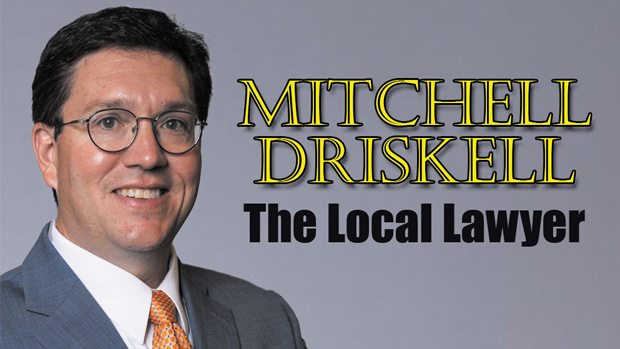
Lots going on in the law as Ole Miss prepared to go to Tuscaloosa and take on the evil empire. Here are some legal stories to take your mind off the game or whatever it is occupying your mind these days.
Ole Miss Law Housing Clinic Hits Tupelo Landlord for $50,000
Julio Gordon may be rethinking real estate ownership after the Mississippi Court of Appeals affirmed a $50,000 judgment against him for renting out an awful Tupelo house. With the assistance of the Ole Miss Law Housing Clinic, Gordon’s tenant, Christy Dickerson sued Gordon over a house with a leaking roof, busted plumbing (no toilet), collapsing floors, and a kitchen so bad she had to cook all meals outside. She asked for repairs, but Gordon never came through. She sued him, but Gordon ignored the lawsuit. The local court hit him for $50,000, mostly punitive (punishment) damages exceeding the amount it would have taken to fix up the house. Then the Appeals court agreed with that result and upheld the $50,000 judgment. These kinds of results do not happen often in Mississippi where the law favors landlords. I could bore you with my outline of the Mississippi Landlord Tenant Act, but suffice it to say, about all a landlord is legally obligated to give you is a house the is “habitable,” which means the bare minimum. Any promise over that must be in the lease, and landlords (and their lawyers) draft the lease. Good work by the Ole Miss Housing Clinic to put this landlord in his place and possibly out of business. Hotty Toddy, Gordon Shoulda Fixed the Potty!
Texas Abortion Law Update
“Legal fees be damned!” is the message from elite law firms ready to offer pro bono (free) assistance to people sued under the new Texas abortion law—even if it means the lawyers could be on the hook for their opponents’ legal fees. Hundreds of highly skilled lawyers have signed up to represent people sued under the now-infamous Texas law, even if the lawyers can be held liable for the other side’s fee. The law puts not only the defendants (the people accused of aiding in the abortion) but also their attorneys on the hook for the other side’s attorney’s fees if the person is found to have aided and abetted a Texas-illegal abortion. An apparent attempt to discourage pro bono representation, “designed to dissuade counsel from coming in” said one lawyer. People proud of the law call it “a very elegant use of the judicial system.” People opposing the law call it back-handed, un-American even, to draft a law that makes it difficult to even defend yourself.
Regardless of how “elegantly” designed the drafters of the law thought it might be, the first lawsuits brought under the law are anything but elegant. A San Antonio doctor performed an abortion violating the law and wrote about it in a Washington Post op-ed article, inviting people to sue him. He is facing two lawsuits. One suit is by an Arkansas man, Oscar Stilley, who describes himself as a “dis-barred and disgraced former lawyer who is currently on house arrest” for tax evasion and conspiracy charges. This convict has openly admitted he does not care about abortion, one way or another. He only wants the reward money available under the law and is suiting Dr. Braid, from house arrest, for $100,000. That’s not exactly what pro-life Texans envisioned with the law. Another suit is by a pro-choice activist from Chicago actually asking the Court to invalidate the law, and that is surely not what was envisioned. Texas Right to Life, who promoted the new law, calls both lawsuits “self-serving legal stunts abusing the cause of action” created by the new law. The law might be intended for genuine pro-life citizens to oppose abortions, but that is certainly not how the first two lawsuits under the law are playing out.
Mississippi Abortion Law Update
The Supreme Court set December 1 for arguments over a Mississippi law banning most abortions after 15 weeks. The case, Dobbs v. Jackson’s Women’s Health Org., will be THE CASE that will either uphold or reverse the rule set in Roe v. Wade—the constitutional right to abortion before the child is viable outside the womb (typically put at about 22–24 weeks). The Mississippi Law has been put on hold from going into effect until the Supreme Court makes its decision. The December oral arguments, where lawyers plead their side of the case and answer questions from Justices, set the stage for a 2022 decision on the future of American abortion law.
Silent (Late) Night
Oxford never had one before but now has a noise ordinance. And it’s a doozy. In residential neighborhoods, the sound limit is 65 decibels, measured from the property line or street, between 10 am and 10 pm (vacuum cleaners and hair dryers are 70 decibels at the source). After 10 pm, the rule is noise/music cannot be “plainly audible” from the property line or adjacent street. “Plainly audible” means sound that can be heard by a person using his or her unaided hearing faculties, and the bumping bass portion of music alone (if all the officer can hear is the base) is sufficient to verify plainly audible sound. In apartment complexes, the noise limits are 45 decibels during the day, 35 decibels after 10 pm and at any time during the day all “low frequency pulsing” (bass from music) cannot be plainly audible next door. If you live in an apartment, you have to be quiet as a mouse. In an apartment or house, if your neighbor can hear your music, at all, you are in violation. Violations can result in fines up to $1,000, and the party will be over. Download a decibel meter app on your phone and see how quickly you are in violation.


